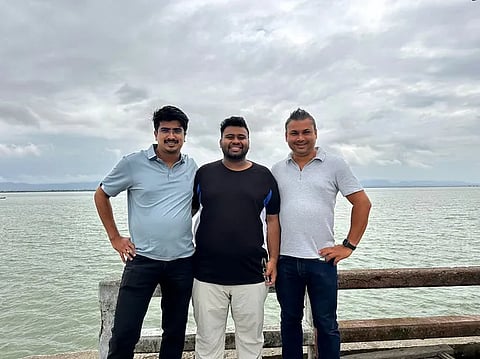

The team behind bluetech startup Seaqua, with founder and CEO Amirul Mostafa Arefeen pictured on the left.
Photo: Seaqua.
Seaqua, the Bangladeshi startup utilizing blockchain technology to improve efficiency and traceability of seafood supply chains, has secured $600,000 in foreign direct investment (FDI).
Led by founder and CEO Amirul Mostafa Arefeen, Seaqua describes its approach as "an innovative value chain designed to minimize wastage and enhance efficiency at every juncture".
The company integrates real-time catch records into its supply chain, providing retailers with accurate, up-to-the-minute information with a focus on traceability of seafood products.
Seaqua also strongly emphasizes compliance, the company said, verifying adherence to fishing season regulations, authorized fishing areas, transshipment at sea guidelines, and social accountability standards.
"Seaqua’s adoption of blockchain technology for traceability maps not only bridges blue finance gaps but ensures a verifiable commitment to compliance, offering a comprehensive solution to the challenges faced by the fisheries and aquaculture industry," the company said in a press release.
"The convergence of an efficient supply chain, real-time data integration, and rigorous compliance measures position Seaqua as a trailblazer in the tech-driven future of blue tech," it added.
Fisheries and aquaculture in Bangladesh account for $9.42 billion, or 3.61%, of the country's GDP, with a 2022 export market value of USD 600 million. Fisheries and seafood also account for 60% of the Bangladesh’s annual protein needs, sustaining over 12% of the population.
Seaqua said that the USD $600,000 investment, obtained from Middle East investors, "catalyzes" its "mission to revolutionize the industry environmentally and economically".
"This commitment underscores Seaqua’s dedication to ethical operations, promoting sustainability within the industry, and supporting the communities it serves," it said.
